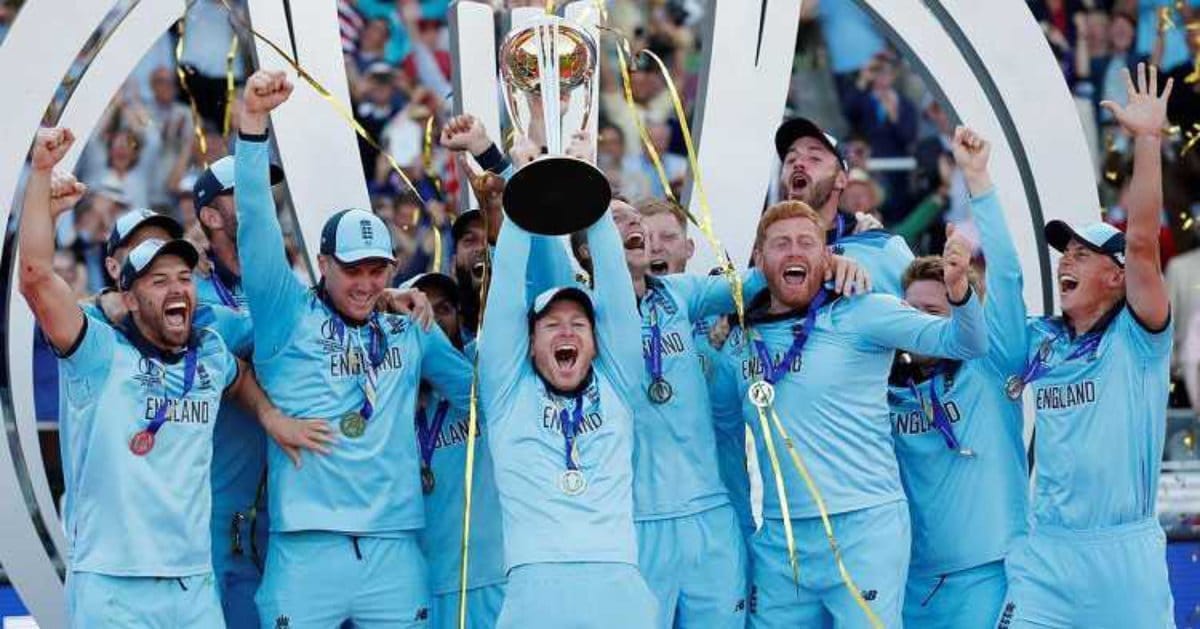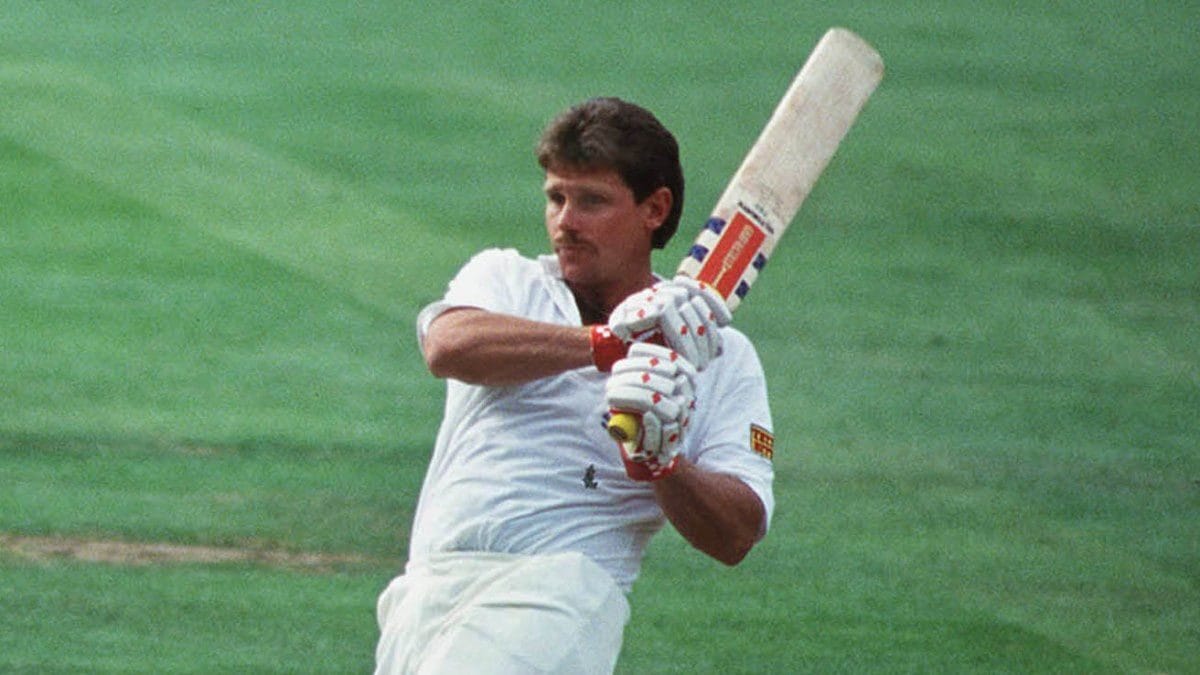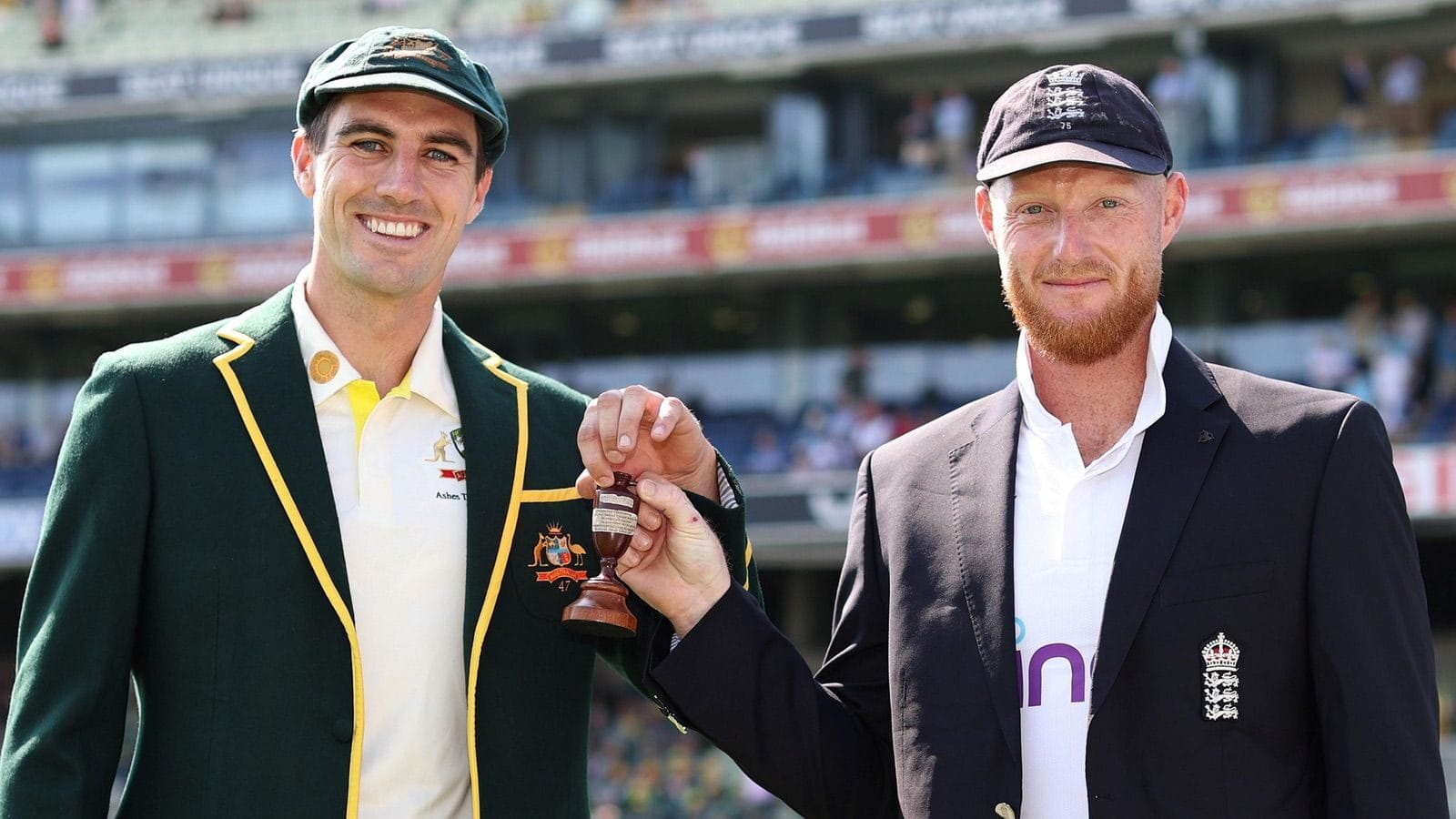That’s the rule. Even England, the side all neutrals wanted to lose (after the elimination of India) can’t be blamed for that. Not so long ago 241 for 8 versus 241 all out would have meant victory for the former. But that was then. There is a strong case for saying New Zealand deserved to lose less than England. In that last almost unbearable half hour everything seemed to go against them, especially the two “sixes”, the one caught by Trent Boult on the boundary, and the one deflected off Ben Stokes’ bat. (Stokes’ other six, which took the target from 15 off four to nine off three – still exceptionally demanding – was a different matter.) Jimmy Neesham, one of the heroes of CWC 2019, who almost got his side over the line in the Super-over, summed it up so well on twitter, and demonstrated why New Zealand are so popular: “That hurts. Hopefully there’s a day or two over the next decade when I don’t think about that last half hour. Congratulations England, well deserved.”
It was surely the greatest limited overs match of all. Context has to be taken into account, which means we are talking about World Cup knock out matches. That brings us inevitably to Edgbaston 1999 and the semi-final between Australia and South Africa. That was a tie, with, again, technicalities affecting the outcome; Australia qualifying for the final because they had beaten South Africa in their pool game (maybe a fairer way of dividing two winners than the number of boundaries scored in the match). Again, everyone remembers the final over, bowled by Damien Fleming, and the dramatic finale with the run out. There were great performances in that game too.
But this was different somehow. Being a final was part of it. By all accounts the atmosphere at Lord’s was electric from the start. And the tension and drama of the closing moments didn’t depend, as it did at Edgbaston, on somebody (Lance Klusener as much as Allan Donald) “losing it”. Nobody choked at Lord’s.
It was, again (like Edgbaston 1999 as it happens), one of those games where bat did not dominate ball. This makes for such engrossing cricket. There were four sixes in the match, two by Stokes in the closing overs, one by Martin Guptill, and one by Tom Latham. There were only two partnerships of over 70; 74 for New Zealand’s second wicket, between Henry Nicholls and Kane Williamson, when it looked as though they might take the game away from England; and 110 for England’s fifth, between Stokes and Jos Buttler, when it seemed that, after a stuttering start, England might be on their way to victory. It was Buttler’s departure, to a brilliant catch by substitute Tim Southee in the 45th over with the score on 196, that led to the final climactic events.
Buttler looked in complete control throughout his innings. Most other batsmen struggled. Williamson seemed bound to make runs and it was a huge moment when he was out for 30. The most fluent New Zealand batsman was Latham (47 off 56 balls).
Nothing indicated the problems faced by batsmen more clearly than the innings played by Joe Root and Eoin Morgan. Root, England’s Williamson, who usually manages a strike rate of around 100 without turning a hair, scored seven off 30 balls before chasing a wide one from Colin de Grandhomme and nicking to Latham. Morgan made nine off 22. This put a lot of pressure on the batsmen to come.
No bowler really dominated either. The redoubtable Liam Plunkett did what he has been doing for the last four years, managing the middle overs. His three wickets were top scorer Nicholls, supremo Williamson and danger man Neesham. Chris Woakes took three for 37. For New Zealand the most remarkable performance came from fifth bowler de Grandhomme, who took one for 25 in his ten overs, the most economical ten over spell in the whole tournament. Neesham and Lockie Ferguson both took three wickets.
Everybody did something in this match. Even substitutes Southee and James Vince (who held two catches) had their moments. But nobody did more than Stokes.
From the opening match at the Kia Oval on – was it really 30 May – when he made 89 off 79 balls and then took one of the competitions most stunning catches, Stokes has been like a man possessed. It is as though he realises that he owes this team something, after the debacle of Bristol, and The Ashes. Time and time again he has played a decisive role. There was a nasty moment, after Buttler was out, when the match looked uncomfortably reminiscent of the Headingley slip-up against Sri Lanka. But the tail stayed with him, just, and showed some nous. By the time it got to the super-over, Stokes wasn’t going to be denied.
Nobody, however, could question the choice of Player of the Tournament. “Who, me?” was Williamson’s entirely typical response on being told of the nomination. I said after his match-winning century against South Africa at Edgbaston that we’d be lucky if we saw a better innings in this World Cup. I’m not sure we did: Ravi Jajeda’s 77 in the semi-final at Old Trafford maybe? His captaincy has been outstanding, and his dignity in what must have been the most utterly galling of circumstances, deeply admirable, refusing to be drawn on the very real doubts about awarding six (rather than five) for the bat-deflected overthrow. As he said, there were so many other issues in this pulsating contest.
And let’s face it, England too deserve some praise. In the group stage New Zealand won a number of really tight games but then lost heavily against strong opposition: they actually qualified for the semi-finals on the basis of net run rate. England won a number of games easily but lost a couple of tight ones, against Pakistan and Sri Lanka. Well, games don’t come much tighter than this final.
And this England side might actually get better. Morgan and Plunkett (who played in the 2007 World Cup) are unlikely to be around in 2023 but the others – plus the Currans and Alex Hales – should be. How good will Jofra Archer be by then. He hadn’t played a single one-day international before the Pakistan series in May, yet Morgan trusted him with the super-over.
We still have the England and Wales Cricket Board to contend with. Fair enough they put the family silver on winning the World Cup, and got there – just. Their new obsession, The Hundred, will now take (financial and scheduling) precedence over everything else, including the 50-over game. Let’s wait and see what happens.
Whatever happens this was an unforgettable match. Reportedly over eight million people watched it on free-to-air TV in the UK alone. This was such a good thing for cricket. Its devotees know that no sport – none- can produce the tension that cricket’s unique combination of team and individual competition over a substantial period of time, can provide. This game showed that more than any other.
The England players’ lives will never be the same. As Neesham indicated, in a different way the same is true for New Zealand.
Nobody deserved to lose. But somebody had to win.
Bill Ricquier





1 comment
Rory Miller
You might have mentioned Lockie Ferguson’s wonderful catch to dismiss Eoin Morgan, Bill. If the final result had turned out differently that might have been seen as the critical wicket…